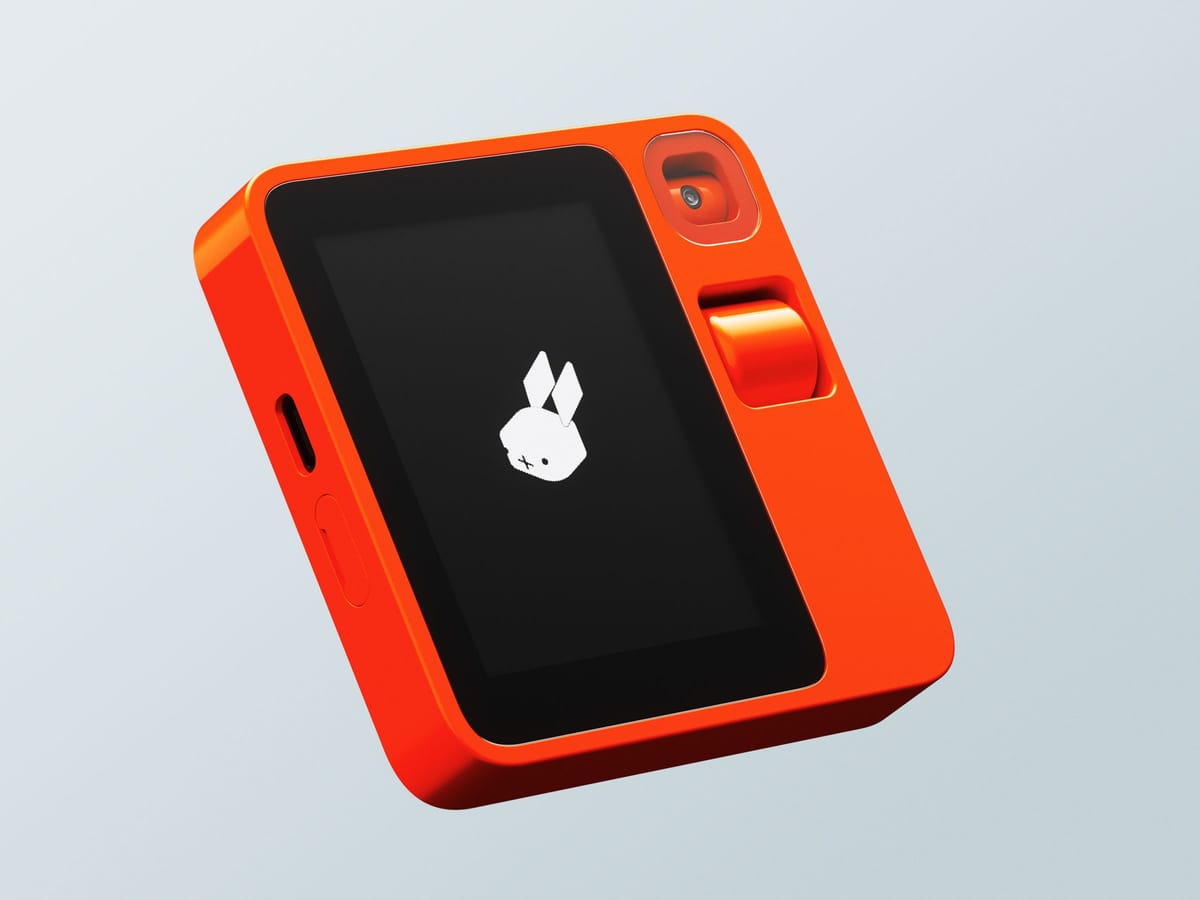AI Overload: The Folly of Silicon Valley's Latest Gadget, the rabbit r1
Silicon Valley's rabbit r1, an AI device, overcomplicates life with redundant tasks and privacy concerns, symbolizing tech's unnecessary excess.

There's something uniquely irksome about the constant push to embed AI into every crevice of our lives. It's not the AI itself - it's just code, after all. But the insistence that because Large Language Models (LLMs) exist, they must infiltrate every aspect of our existence is a step too far. Enter the rabbit r1, a device that embodies this overreach.
The rabbit r1 is a tech trinket, a so-called AI walkie-talkie, armed with LLMs and what rabbit whimsically calls a "Large Action Model" to execute complex decisions. Unlike typical LLMs that might suggest a flight but stop short of booking it, rabbit r1 boasts of its ability to log into your services like Uber and Expedia, and lets you juggle them through its platform. This is all via a little device that, amusingly, doesn't contain the actual apps.
Teenage Engineering, known for their aesthetically pleasing yet questionably priced audio gear (pocket operator being the exception), designed this gadget. It's reminiscent of the Playdate, but don’t be fooled. The Playdate is a charming, simple console, while the rabbit r1 is an intrusive nightmare I wish to forget after writing this blog.
Watching the entire keynote by CEO Jesse Lyu is an exercise in masochism. It's a cringe-worthy Steve Jobs impersonation, flaunting a series of tasks for the rabbit r1 that are either trivial, already achievable through existing apps, or laughably mundane. This includes asking the device to book trips, order pizza, or even engage in a less-than-stellar attempt at humor by rickrolling.
The irony here is palpable. Silicon Valley's modus operandi of repackaging existing services in lazier, more invasive forms is on full display. The rabbit r1 doesn’t just add an unnecessary layer to services we already use; it's a two-device circus with redundant functions.
The tasks it performs are so uninspired they beg the question of why anyone would need an AI to dictate the top ten tourist spots in London. I wouldn’t entrust a large language model with important decisions about my time or money, especially when it operates without connecting to any real apps or APIs.
rabbit's big sell on privacy and simplicity falls flat when you consider the device's reliance on remote decision-making via an OS and cloud service that are hard to trust. Training the app to edit a spreadsheet which it then emails back to you? That's not innovation; it's a convoluted mess.
Jesse Lyu poses an excellent question: "Why would I need a new device if I already have a $1,000 iPhone?" Exactly, Jesse, exactly. We don't need this overcomplicated, overdesigned piece of tech. Silicon Valley seems to miss the point that these 'innovations' are more cumbersome than the concept of an app itself.
This constant imposition of AI - from generative AI to large action models - is exhausting. Microsoft, Google, and even Firefox are guilty of shoehorning AI into their products, often to the detriment of the user experience. This push towards AI is not just making the internet a less pleasant place; it's fueling laziness, killing curiosity, and frankly, it’s as tiresome as the fleeting obsession with NFTs.
So here's my plea: Silicon Valley, take your overdesigned plastic monstrosity and leave us alone. We don’t need another device complicating our lives under the guise of innovation. Let's keep some things simple, shall we?





